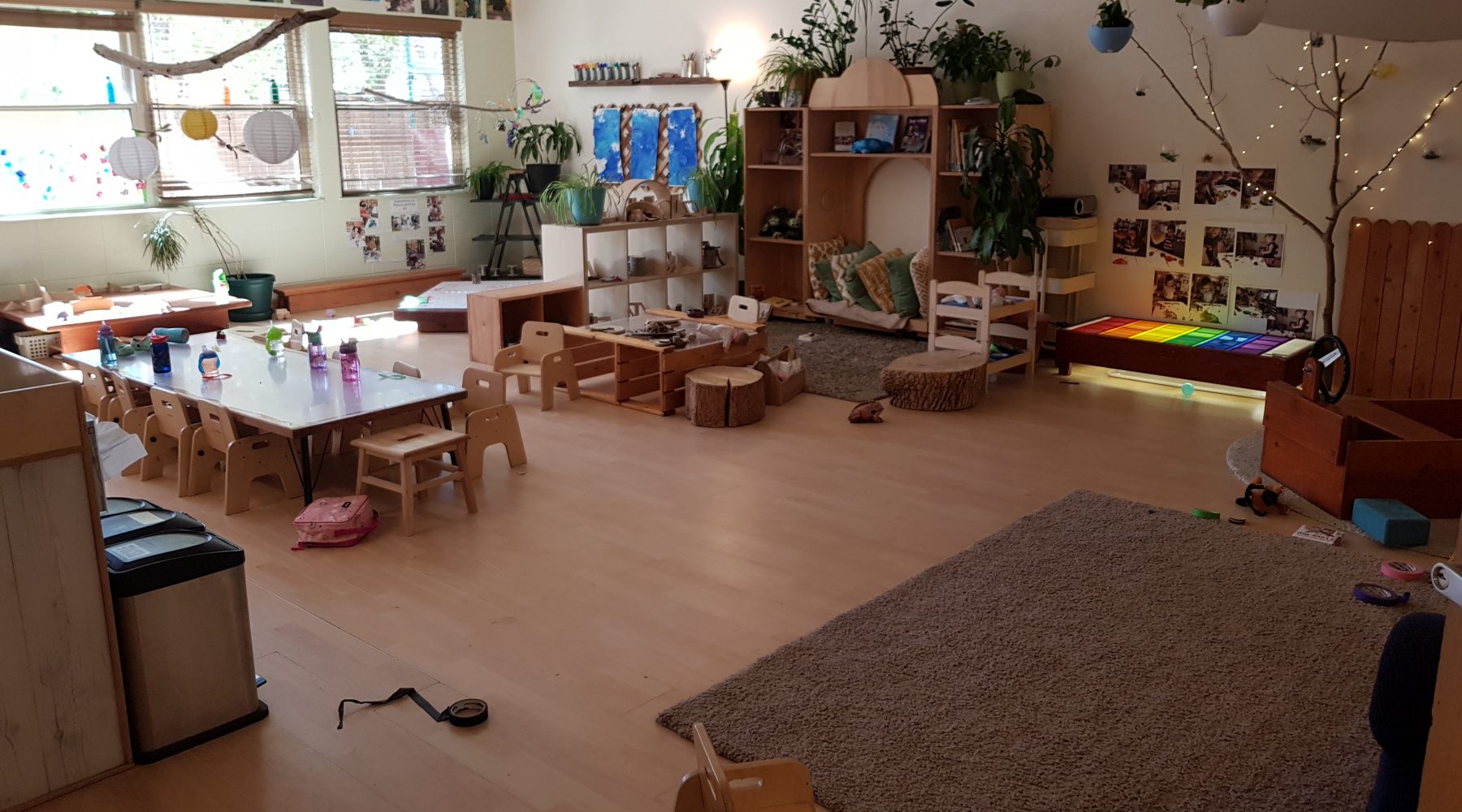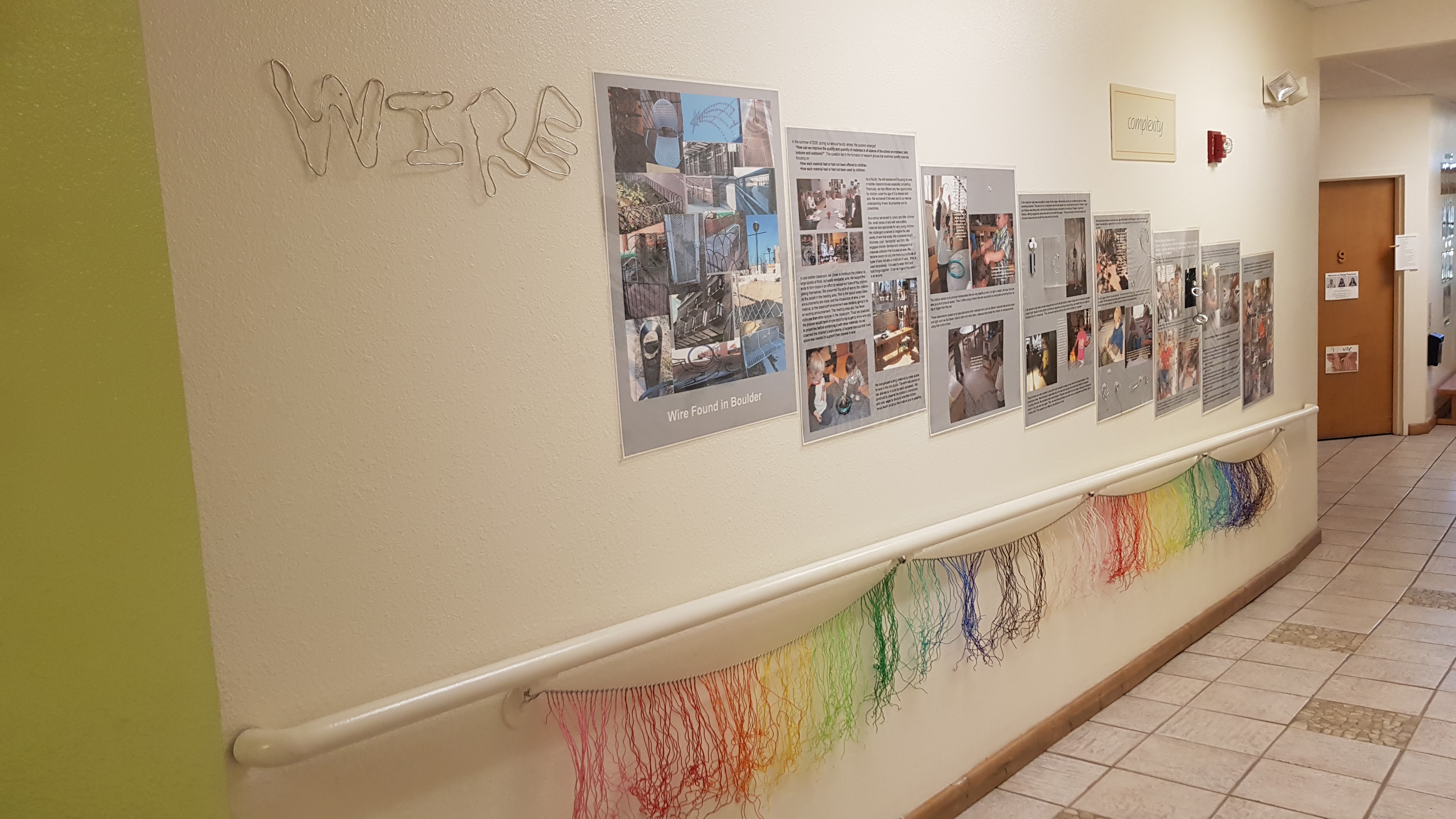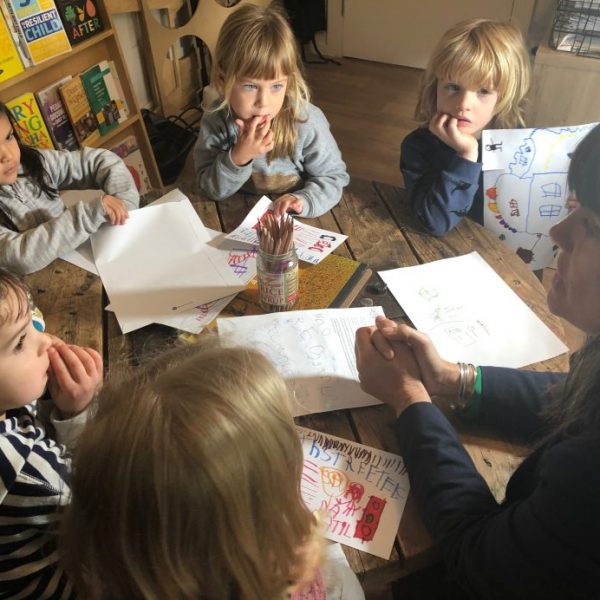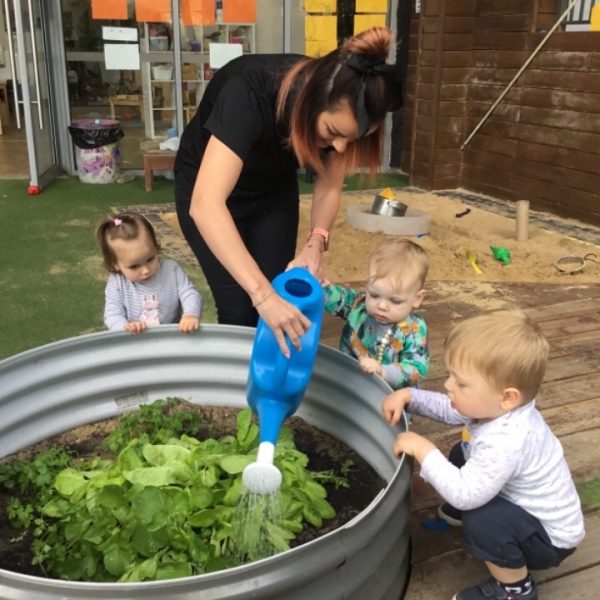Guardian’s leaders visit Boulder Journey School

Four leaders from Guardian Childcare and Early Education recently had the opportunity to participate in a study tour which saw them visit the Boulder Journey School in Boulder, Colorado USA, after their success in being awarded either the Centre Manager of the Year or the Claire Penno Advocacy Award.
Melissa Hunt, Simone Myskiw, Chloe Flannery and Alyce Mardell each had the opportunity to benefit from the long standing professional relationship Guardian has established with the school, and share their thoughts in the article below.
When asked what they were expecting from the Boulder Study Tour, Ms Hunt said she was anticipating that she would be merely an observer, but found instead that she quickly became part of the school.
“Considering we were only at the school for three days, we were welcomed with such warmth,” she said. “It really kick-started the experience, and made it so much more valuable.”
The children, she noted, saw the newcomers as their teachers, and the Boulder educators were open and honest with their knowledge.
Speaking about how the Boulder Study Tour had challenged existing thinking, Ms Mardell said the project based learning approach as embraced at Boulder was the biggest surprise for her.
“It demonstrates that everyone is valued in the curriculum, and that each child has an end goal that they are striving to achieve. Everyone enters Boulder with a purpose that’s measureable” she said.
Observations
In the innovation space, Ms Myskiw said it was powerful to be in a space where educators had no set routine or agenda. This absence of “have to” meant that educators had the opportunity to identify any gaps in practice.
They asked themselves the question ‘what would happen if we let ourselves be comfortable with being uncomfortable?’ she noted.
This created space, Ms Myskiw said, meant that the educators were able to observe the children, and not intervene until they were really needed.
In addition, Boulder had their own way of speaking and listening to children, not using words like “stop” or “don’t”. This, coupled with consistency across the centre, was a noticeable point of difference, she added.
Ms Flannery was most taken by the environment, saying the hallways were always set up with resources, extending the learning environment far beyond the classrooms themselves.

The hallways, she said, are planned to flow off previous experiences, which adds to a sense of welcoming and community. Far from being cluttered, however, the classrooms, she said “were beautiful” but not overwhelming.
“I asked why the set up was minimal and the educators explained it’s because they really investigate the joy, and what children are truly interested in, meaning they don’t need to ‘bulk up’ spaces with too many resources”
Ms Hunt noted that the main difference in Boulder was related to planning and curriculum, and the structure of the way program planning took place in conjunction with the children, avoiding routine and choosing instead to follow the child and develop a more individually tailored program.
Educator role
The educators at Boulder impressed the Guardian team with their keen observation of each child, saying it was clear that they held huge respect for the children. There was, they said, a real sense of calmness, and a lack of urgency, with educators instead sitting back, highly attuned to each child’s needs.
This calmness, Ms Hunt said, also impacted on the dispositions of the children, who were never rushed because everything was on their terms.
“They are the bearer of their own rights” Ms Hunt said, giving the example of an excursion involving walking with two year olds.
“I watched on in amazement as these toddlers reached for their ‘street hand holder’ when crossing the road. They knew the rules and what was expected of them. It was clearly an embedded practice” she added.
Changes to bring back home
Ms Flannery would love to see a resident program arise in Guardian Australia as a result of the visit to Boulder, which would see early childhood teachers complete their masters degree, while contributing to the daily program of the centre.
“I know that Guardian already take on trainees, but something like the Boulder Resident Program could be great for those who wanted to further their qualifications,” she said.
Ms Mardell said the visit reinforced for her the importance of environments being intentionally set, and created, in collaboration with children.
For example, she said, at the end of the year when an Educator moves on from a room they have a discussion with the Educator moving in to decipher what worked and what didn’t. After a couple years of this practice, the rooms are almost perfected.
Ms Hunt observed that practice within Boulder seemed to have been built based on the strengths of the team, observing that the study tour program didn’t employ any external sources or educators, something she believes could also work well for Guardian centres, as a way of utilising the pool of experience found in Educational Leaders and the Quality and Curriculum team.
Extending on the professional development theme, Ms Myskiw said she would love to see a summer conference where educators could submit an application, in relation to something taking place in their workplace, and present it to other colleagues.
Guardian Childcare and Education currently offer educator days and conferences which provide opportunities for educators to share their learning, and the summer conference, Ms Myskiw said, would be an extension of same.
To learn more about Boulder Journey School, please see here. For more information on Guardian Childcare and Early Learning, please see the website, here.
Popular

Quality
Practice
Provider
Workforce
Reclaiming Joy: Why connection, curiosity and care still matter in early childhood education
2025-07-09 10:00:07
by Fiona Alston

Policy
Practice
Provider
Quality
Research
Workforce
Beyond the headlines: celebrating educators and the power of positive relationships in early learning
2025-07-07 10:00:24
by Fiona Alston

Workforce
Policy
Quality
Practice
Provider
Research
ECEC must change now, our children can’t wait for another inquiry
2025-07-02 07:47:14
by Fiona Alston













